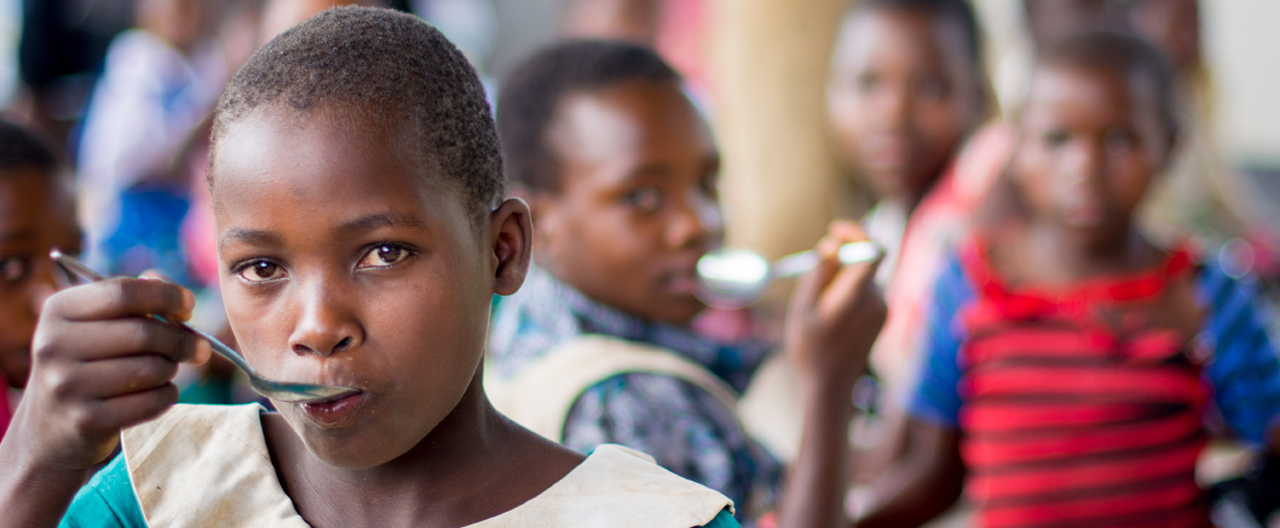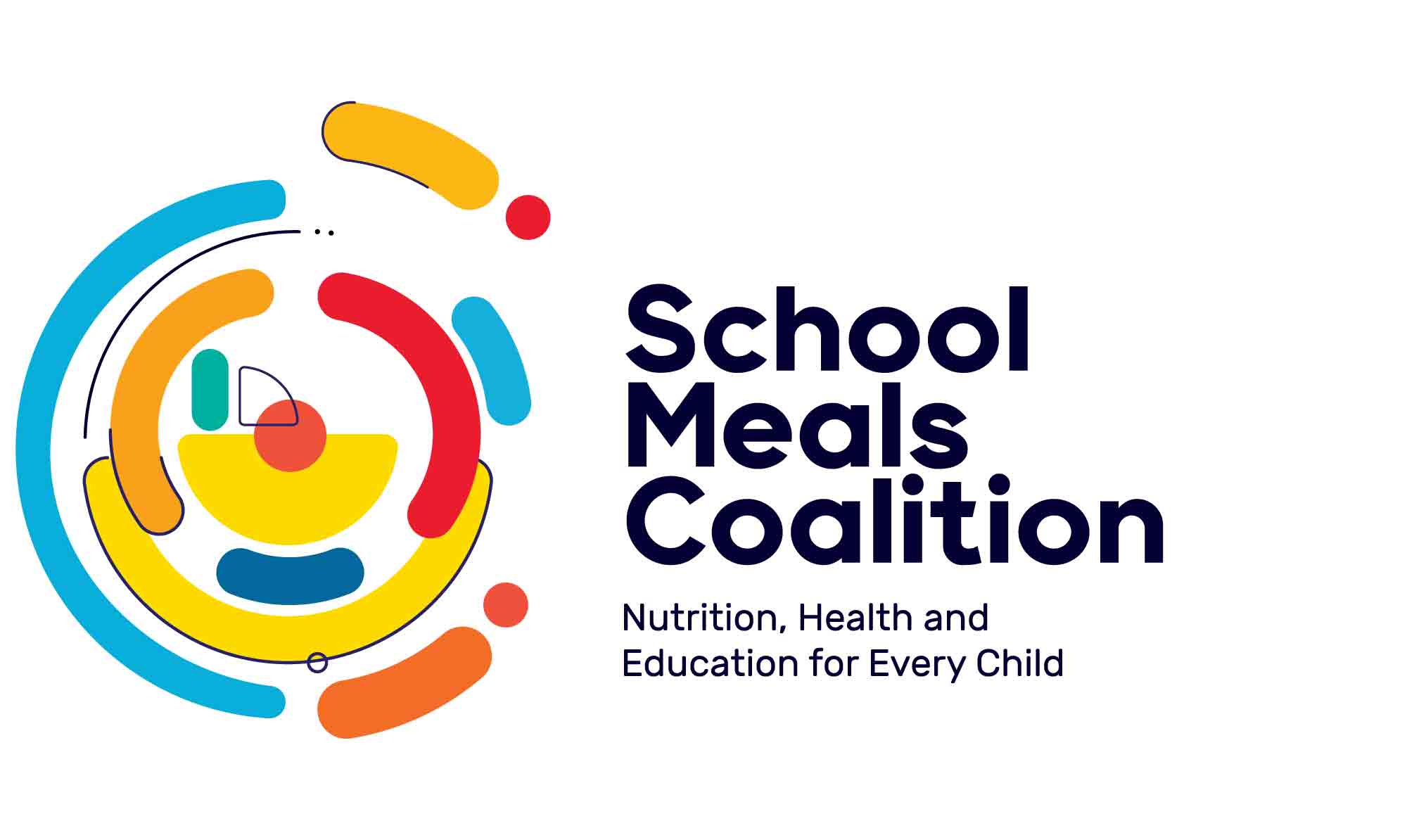School meals
- 466 million children
- are receiving school meals through government-led programmes
- 20 million people
- in 61 countries supported by WFP with take-home rations and cash-based transfers
- US$1
- invested in school meals has a return of up to US$35 in benefits
Every day, over 100 million children in low- and lower-middle-income countries are going hungry. Millions go to school on an empty stomach – hunger affects their concentration and ability to learn. In conflict-affected countries, children are twice as likely to be out of school than their peers in stable countries. For many, especially girls, school meals are a lifeline that keeps them in the classroom and out of early marriage or child labour.
The World Food Programme (WFP) supports governments to ensure that all school-age children have access to school meals and are healthy and ready to learn. School meal programmes are a proven, cost-effective investment in human capital, with every US$1 invested generating up to US$35 in returns.
Benefits beyond the classroom
- Boost education: Improve attendance, concentration and learning.
- Improve health and nutrition: Provide essential nutrients and promote healthy eating habits.
- Empower girls: Encourage school attendance and delay early marriage and pregnancy.
- Strengthen local economies: Support smallholder farmers through home-grown school feeding. This benefits local economies and supports better-designed, sustainable food systems that are gender and climate sensitive.
- Build climate-smart food systems: Reduce supply chain emissions and promote sustainable agriculture.
School meals and complementary health support help build what is known as "human capital" – the sum of a population’s health, skills, knowledge, experience and habits.
Global reach and impact
- 466 million children benefit from school meal programmes globally.
- WFP directly supported 20 million children with take-home rations and cash-based transfers in 61 countries in 2024.
- Up to 99% of programme costs are covered by national governments, with WFP providing technical assistance.
WFP has worked with over 100 countries to establish sustainable, nationally owned school meal programmes. More than 50 of these countries have fully taken over their programmes, demonstrating long-term success and resilience.
WFP’s vision
WFP’s bold vision: every child receiving a healthy meal in school by 2030.
Key priorities include:
- Strengthening national ownership and capacity.
- Aligning programmes with climate-smart and gender-sensitive approaches.
- Expanding the reach of the School Meals Coalition, now supported by over 100 governments and over 140 partners, to further build political commitment and the resources to strengthen and scale national school meal programmes worldwide.
The way forward
WFP continues to push for increased investment in school meals as a cornerstone of social protection, education and food system transformation. You can learn more about school meals and advocate for universal access to them by visiting the School Meals Coalition website. You can also read more stories on school meals via wfp.org and follow WFP on X, Instagram and our other social media platforms. Also, your donations can help us provide food for schoolchildren across the world. Together with governments, partners and communities, you can help us to ensure that no child learns on an empty stomach.
More on school meals' benefits
-
Education and developing potential
-
School meal programmes play a key role in helping children realize their potential, both for themselves and for their communities. They are therefore an important investment in the economic prosperity and human capital of the next generation.
-
Nutrition
-
Sustainable food systems
-
Social protection
-
Gender equality
In focus
How school meals transform futures for children and communities in Cambodia
Story | 9 March 2023
Home-grown goodness: The African Day of School Feeding delivers
Story | 1 March 2023
Philippines: How farm-to-school meals are bringing children back to class post COVID-19
Story | 2 February 2023
Empty stomachs, hard times for Afghanistan's girls
Story | 24 January 2023
How Project Amata supports dairy farmers and helps feed vulnerable schoolchildren in Burundi
Story | 14 December 2022
South Sudan: How school meals encourage girls to stay in school
Story | 16 November 2022
Related topics








